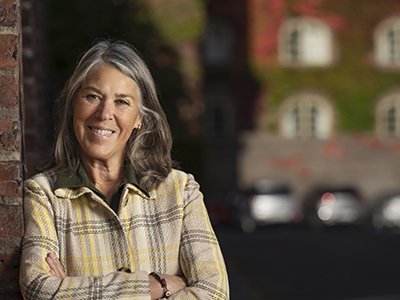2022 – Petra Wadström
The Solvatten innovation is saving lives in refugee camps, war zones and other places where a lack of clean water has reached crisis proportions.
Solvatten provides a container that users fill with contaminated water and place in the sun. A couple of hours later the water is clean and safe to drink, and has also been heated up for household and healthcare purposes.
“The aim is to give everyone access to clean, hot water, using no fossil fuels at all,” says inventor Petra Wadström. She is the recipient of the KTH Great Prize 2022.

KTH Great Prize 2022 goes to innovator behind solar powered water purifier
When Wadström was living in Australia with her family in the late 1990s, she was struck by the intensity of all the solar energy reaching the ground without being harnessed.
She came up with the idea for Solvatten, an idea that gradually grew to the point where she could test materials, functionality and design – all to maximise the effect of the sun’s heat and UVB radiation.
“Today, Solvatten is improving the lives of over half a million people around the world, and I’ve been longing to talk about it,” says Wadström.

At the time of this interview she is planning an upcoming trip to Kenya, to visit ongoing Solvatten projects.
“We also work in refugee camps alongside UNHCR and help out with training and education in water and hygiene. Several projects are under way in the driest parts of Africa, such as Mali, Niger, Uganda and Burkina Faso,” she says.
“Something we can see in all our projects is that entire communities benefit when women and girls avoid that heaviest of everyday tasks: lugging home wood and starting a fire to boil and purify water. This means that girls can go to school more often, and that women have more valuable time.”

Since water is cold when pulled up from a well, even in hot countries, buckets and containers of dirty water are often put out in the sun to warm up. That water is used carelessly for operations and childbirth.
“Using the water like this causes a growth explosion of microorganisms when it reaches temperatures of up to 40 degrees Celsius. But with Solvatten, all the viruses, parasites and bacteria are killed by the UVB light, and that’s a lifesaver, particularly in healthcare,” says Wadström. She says that the key is to achieve at least the same level of purification as if the water had been boiled.
A Solvatten unit costs around €110, and lasts, as Wadström puts it, “a childhood” – seven to 10 years – without having to replace any parts.
“This makes it a cost-effective solution per litre of clean, hot water. Our calculations also show that a unit saves up to 10 tonnes of emissions over its lifetime, and fewer trees are harvested as there’s less need for firewood and charcoal.”
"A great need for clean water in vulnerable and disaster-struck areas worldwide"
Wadström adds that there is a great need for clean water in vulnerable and disaster-struck areas worldwide, and not just in developing countries. And Solvatten units can also be used in parts of the northern hemisphere at the time of year when sunlight is at its most intense.
“My vision is that all people should live in health and dignity, with access to clean and hot water at home. Imagine that,” she says. “The world would certainly look very different from how it does today.”
Text: Katarina Ahlfort
Photo: Mikael Sjöberg
For more information about KTH Great Prize 2022 contact: rektor@kth.se
Contact Petra Wadström: petra.wadstrom@solvatten.se, +46709253601
